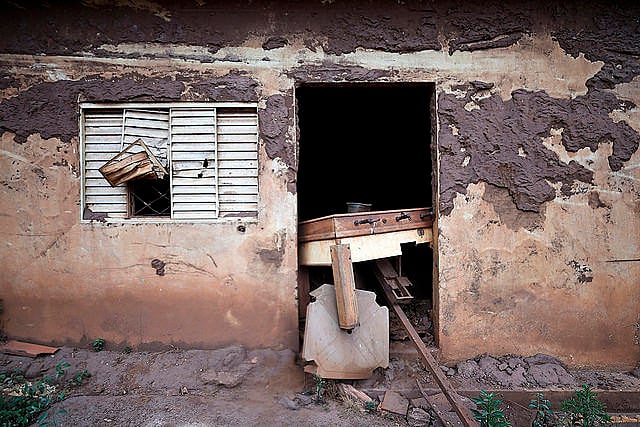The worst environmental disaster in Brazil’s history surpassed its 1,100-day mark since the a Samarco dam collapsed in the southeastern city of Mariana, in Minas Gerais state, releasing 50 million cubic meters of iron-mining waste and toxic sludge down the Doce River and reaching the Atlantic Ocean, devastating the livelihoods of thousands of people along the way.
More than three years after the collapse, small-scale gold miners who depended on the river are still waiting the company’s compensation for the tools they lost. Some areas where they used to work is covered in more than 50 meters (roughly 165 feet) of mud.
“They gave me nothing. They didn’t help me at all. I lost my family’s livelihood. A bridge crashed when I was walking out of it. I was dragged in the mud. I was born again,” 45-year-old small-scale gold miner Vanildo da Silva said. He is one of the thousands of workers who were directly impacted by the crime committed by Samarco, owned by multinational corporations Vale and BHP Billiton.
On the day the disaster happened, da Silva was working in the Ponte do Gama area. One of his fellow workers was diving in the river and only survived the flood because he was able to grab and hold on to a vine.
According to da Silva, while before the dam collapsed, a small-scale miner could earn up to R$3,500 (around USD900) a week, now it’s impossible to access the mining area. All the team’s tools and machines were under Samarco’s toxic mud.
Da Silva recalls how desperate he was three years ago without knowing the whereabouts of his fellow workers.
“I rushed to rescue them. They were there, I stood there too. The mother of one of them called me and desperately asked, ‘where’s my son?’ I told her, ‘All I can ask you now is to pray God.’ Because I thought they were dead,” he said.
The collapse of the dam killed 19 people, but fortunately none of da Silva’s friends died. However, their lives changed drastically, as they did not receive any damages payments.
The website of the Renova Foundation, established by Samarco, claims R$4.7 billion (around US$1.2 billion) was destined to reparation and compensation actions, one thousand Doce River springs were recovered, and other 4,000 are expected to be recovered in ten years.
The Diocese of Colatina, in Espírito Santo state, has been exposing the impacts of the environmental crime for three years and released a statement reporting that the Renova Foundation has been “systematically breaking” the agreement signed between governments and companies to pay damages to the populations that were impacted by the collapse.
On Nov. 5, the Movement of People Affected by Dams (MAB) released a statement denouncing that the Renova Foundation registered only 300,000 people impacted, but left 1 million out of its reports. The movement reports 3,540 indigenous people and hundreds of thousands of fishers were impacted.




